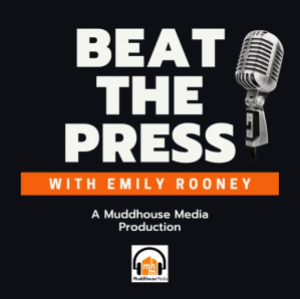 As an alumnus of “Beat the Press,” which was canceled over the summer, I’ve been curious about what GBH-TV (Channel 2) would do about filling the Friday 7 p.m. time slot.
As an alumnus of “Beat the Press,” which was canceled over the summer, I’ve been curious about what GBH-TV (Channel 2) would do about filling the Friday 7 p.m. time slot.
The station ran a local politics show during the fall that was supposed to end on Election Day but was instead extended through the rest of the year. Now it looks like that show is being made permanent, with a new name — “Talking Politics.” The show will be focused on the suddenly hot Massachusetts gubernatorial race.
Although I don’t know whether it’s deliberate (I suspect it was), the name conjures up the connections between GBH News and the late, great Boston Phoenix. The host, Adam Reilly, used to be the Phoenix’s “Talking Politics” columnist. GBH News senior editor Peter Kadzis, who’ll be part of the new show, was the editor of the Phoenix for many years.
Other Phoenix alums associated with GBH News include former “Talking Politics” columnists Jon Keller and David Bernstein as well as civil-liberties columnist Harvey Silverglate. And, of course, yours truly. Might we consider renaming my GBH media column “Don’t Quote Me”?
The full press release follows.
BOSTON (December 2, 2021) – GBH News today announced the launch of Talking Politics, a new weekly show that will take a deep dive into local politics, with a special focus on the 2022 Massachusetts gubernatorial race. Hosted by GBH News politics reporter Adam Reilly, the panel-based series will feature conversations with local political newsmakers, influencers, analysts and activists. GBH News City Hall reporter Saraya Wintersmith, Statehouse Bureau reporter Mike Deehan and politics editor Peter Kadzis will also be key contributors. Talking Politics debuts on Friday, December 3 at 7:00 p.m. on GBH 2 and streaming on the GBH News YouTube Channel.
“Audiences throughout Massachusetts know that the issues being debated on Beacon Hill have the potential to directly impact their lives. And it’s not just the issues, but the individuals who are shaping these discussions,” said Pam Johnston, general manager of news at GBH. “With this week’s announcement from Governor Baker that he will not seek reelection, the race to lead Massachusetts is wide open. Talking Politics will bring audiences compelling conversations and deeply reported local journalism about political issues across the Commonwealth with the 2022 gubernatorial race at center stage.”
Talking Politics builds on the foundation created by Boston’s Race Into History, the pop-up television show integral to GBH News’ multi-platform initiative focused on the 2021 Boston Mayoral Race. In each week’s half-hour episode, Talking Politics will take a broader look at state and local politics and their impact on the issues that matter. The series will investigate a wide range of political developments across the Commonwealth including the unfolding gubernatorial race, the new leadership in place in key Massachusetts cities, and the administration of Boston Mayor Michelle Wu.
The debut episode will look at Massachusetts Gov. Charlie Baker’s decision to not seek reelection in 2022 after leading the Commonwealth for two terms. Host Adam Reilly and guests will also provide an update into the campaigns of the race’s declared candidates, Republican Geoff Diehl, and Democrats Danielle Allen, Ben Downing, and Sonia Chang-Díaz.
Audiences can stay up-to-date with local political coverage by subscribing to the GBH News politics newsletter. GBH News has been expanding its political coverage over the past year including a multi-platform journalism initiative focused on Boston’s mayoral race and regular appearances by elected officials on Boston Public Radio.








